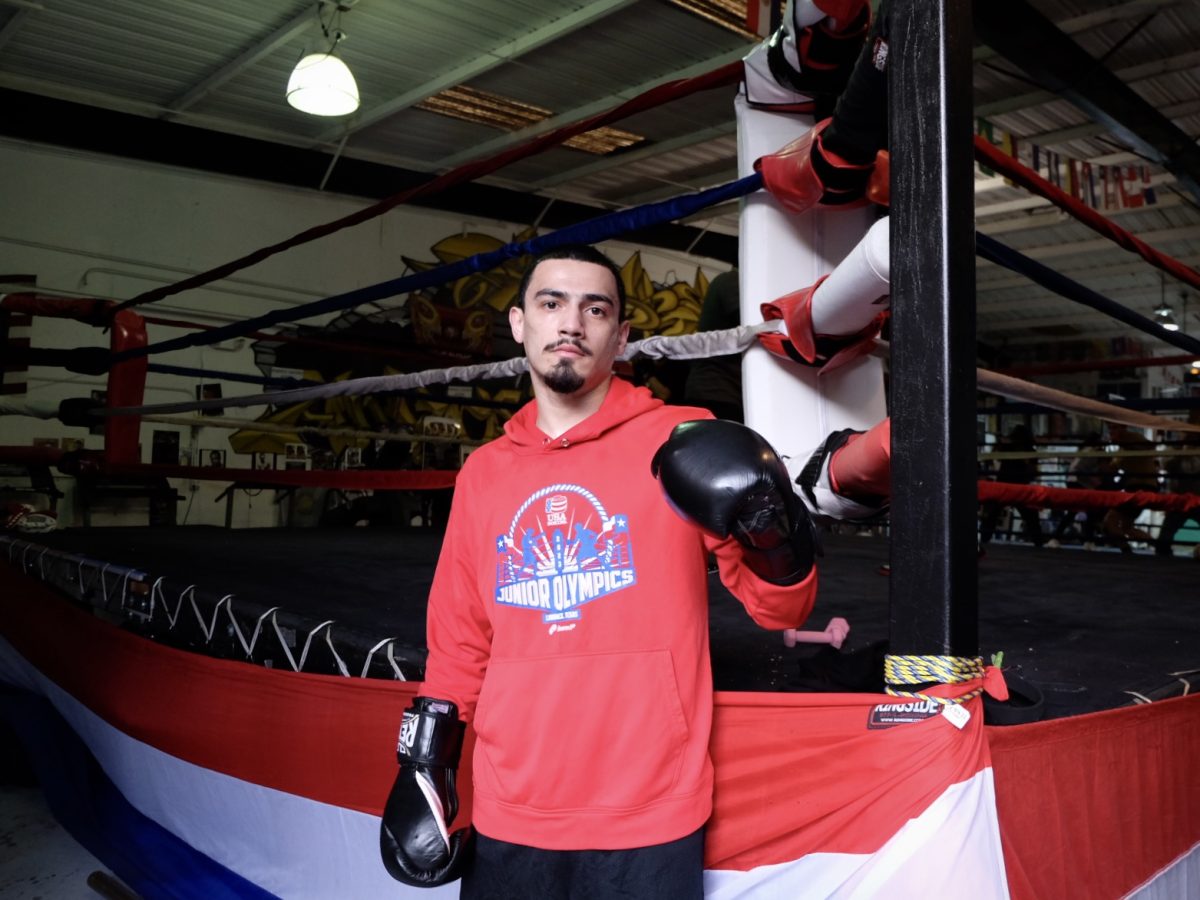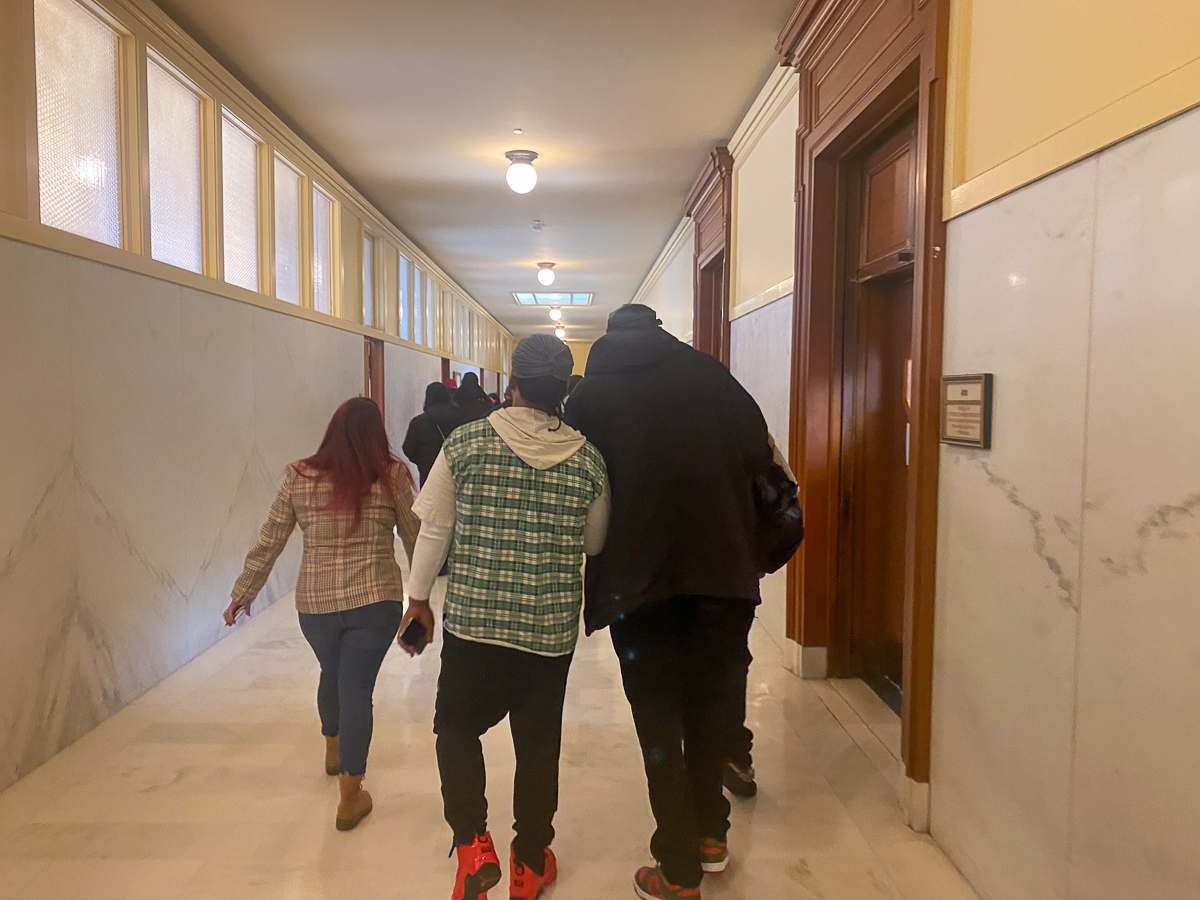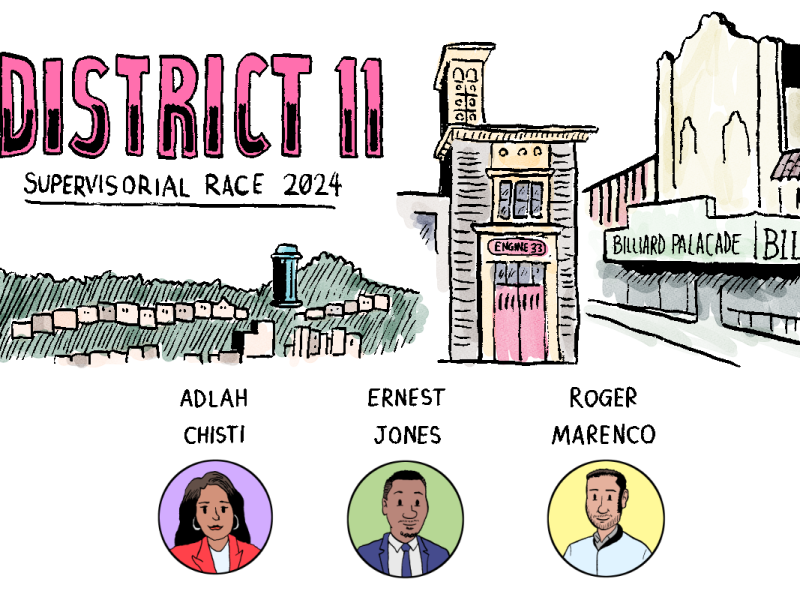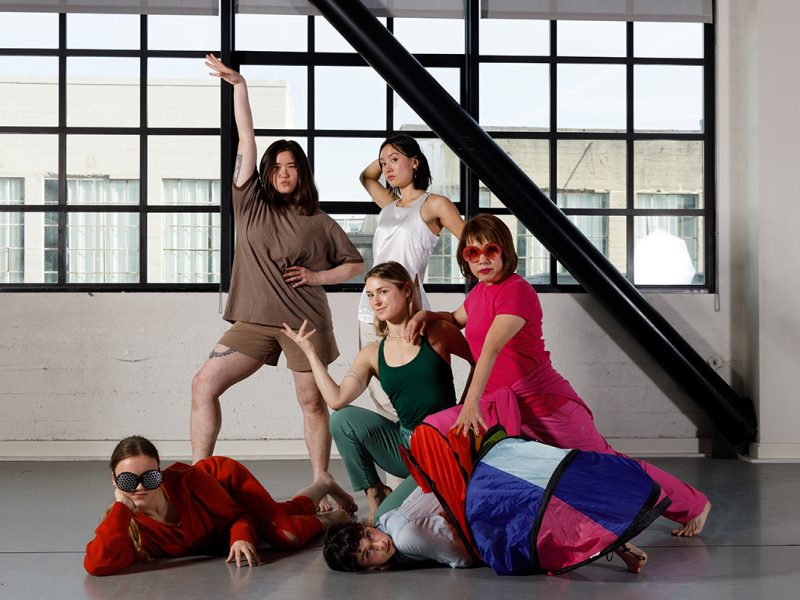Carlos Aroche grew up in a house full of boys, so being physical wasn’t anything new. “I was getting punched already before I was boxing,” said Aroche, 21, who lived in the Mission on Cesar Chavez Street and went to school at Life Learning Academy on Treasure Island. At eight, he saw his older brother box for the first time, and knew immediately that this was what he wanted to do.
Except that he was just eight, so his dad, Luis Aroche, didn’t let him. By 12, though, he had his first sanctioned fight, at a rooftop athletic club in Sacramento. Not yet having his own gear, Aroche borrowed his gloves from the gym: “Little Mexican ones that said ‘panther’ in Spanish.”
“I remember it going by so fast,” he recalls. “The next thing I knew, I got my hand raised and got my first award ever.”
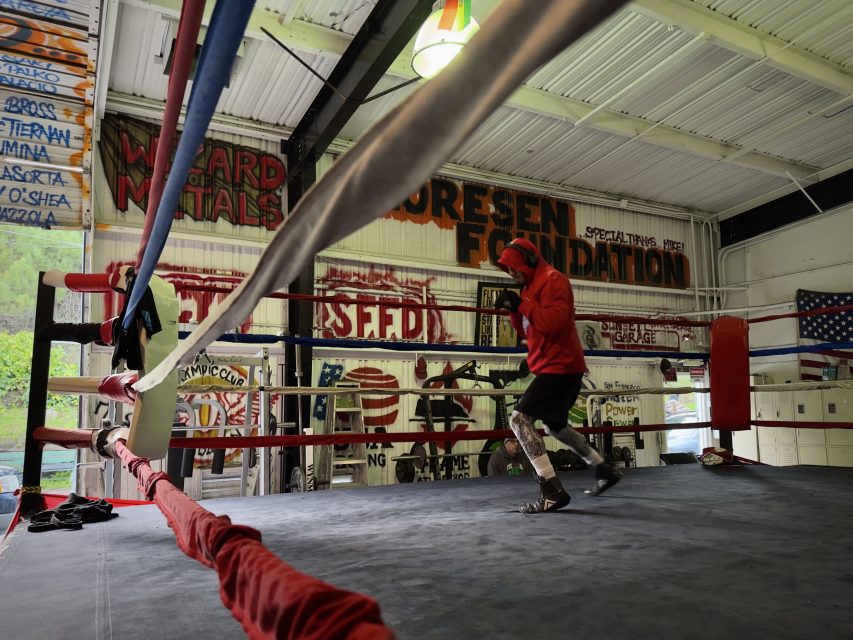
Sunday, Feb. 18, marked his 32nd fight, when Aroche won the Northern California Golden Gloves amateur boxing championship for the second year in a row. In early March, Aroche will head to Albuquerque to compete at the USA Boxing National Open, another amateur tournament. At 5-foot-8-inches and 139 pounds, he will compete as a light welterweight.
Even today, Aroche can’t really pinpoint what it is about boxing that mesmerizes him, saying, “it would be hard to imagine life without” it.
“Every time I take time off of boxing,” he added, “I get that feeling that something’s off.”
But to Aroche, the sport is far more than two people in a ring beating each other into submission. It’s “a thinking man’s game,” too.
“It’s almost like a chess match,” Aroche said. “Some people may be faster, some people may be stronger. Some people, you can’t fight on the inside with: You have to fight on the outside.”
A young man’s sport
The boxing gym Fire in the Ring, where Aroche conducts his training routine six days a week, is anything but quiet at 5 p.m. on a weekday afternoon.
In a warehouse on Industrial Way in Brisbane, next to auto shops and flooring companies, the gym is filled with young kids in boxing gloves and adults perfecting their footwork in the ring. A quote printed on the wall reads: “Stand for something, or fall for anything.”
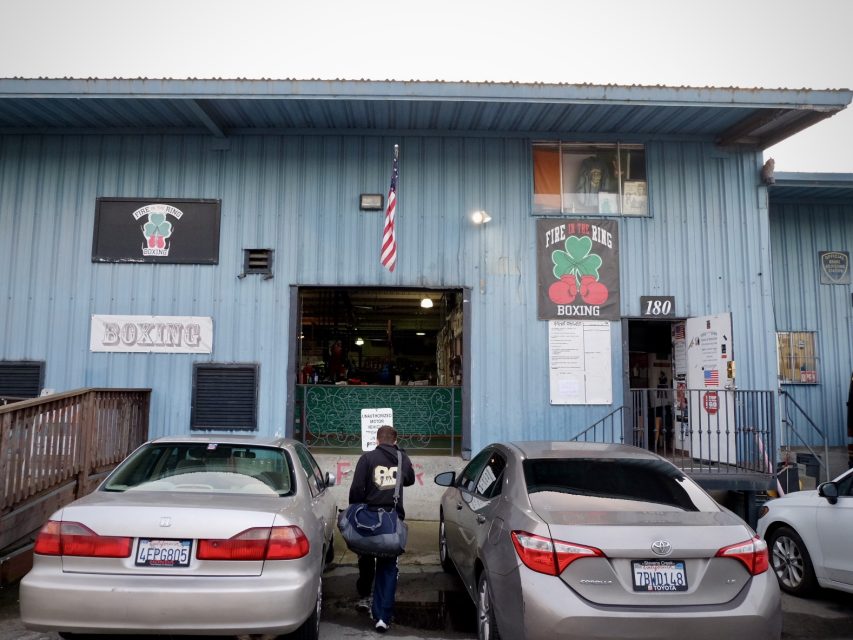
Being able to compete and train again after the pandemic, which took away three of his “prime years,” means the world to Aroche.
Typically, amateur boxers have their best fighting years around the age of 18, when the sport is filled with young aspirants. When Aroche turned 18 in 2020, however, it was a world with no fights, no tournaments and no gyms to train in.
“He kind of felt like everything just stopped at his peak,” said his father, Luis, who started coaching his son during the pandemic. “All of the hard work that he was trying to do got put on hold.”
That didn’t stop either of them. Coach Luis bought a heavy bag, donned punch mitts and a body protector, and started training his son in the family’s garage in Antioch. Aroche did sit-ups or jumped rope next to the washer and dryer, hoping that the pandemic would be over by the end of the spin cycle.
Now, trying to make up for lost time, Aroche has scheduled back-to-back fights, and he trains with almost no breaks in between. After winning the Northern California championship on a Sunday, he was back at his boxing gym again on Monday.
“I have to put as much as I can into it right now before I get 23, 24, 25, before it gets too late, before I get too old,” Aroche said. “You know, this is a young man’s sport.”
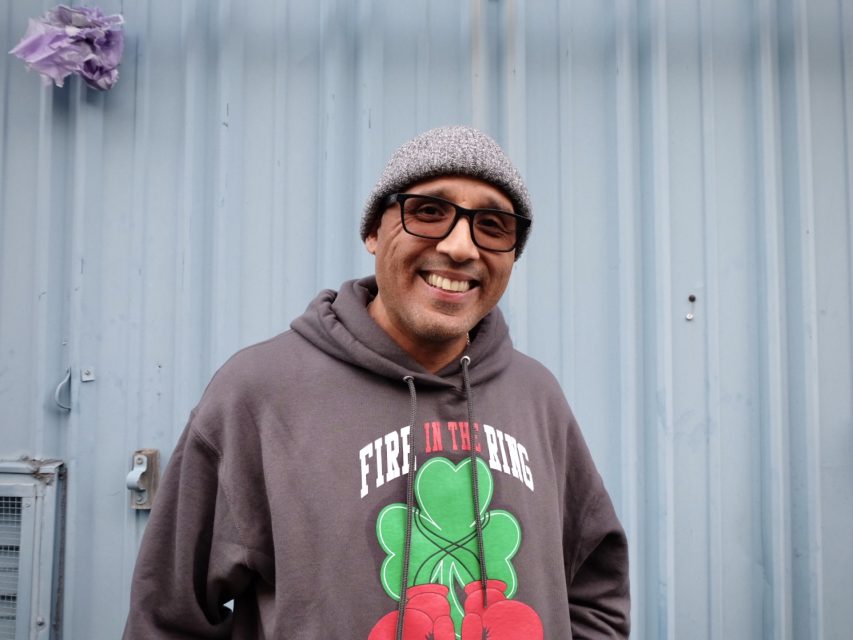
Boxing in the blood
Boxing is a family tradition for the Aroches. Carlos’ grandpa fought in Puerto Rico. His dad and uncles were all boxers. One uncle, Jerry Ramirez, won a California state championship and another, Angelo Aroche, went as far as the Junior Olympics. “We watch boxing during Thanksgiving specials,” said Luis Aroche.
It is also a sport that requires a lot of discipline, “Boxing does not lie. The ring will tell the truth,” Luis Aroche said.
But Carlos Aroche loves how much dedication it takes to be great in the sport.
He orders salads when his friends eat fried-chicken sandwiches. He starts his day with six miles of running, and ends it with another two-hour session at the gym. In between the sessions, Aroche, now living in the Excelsior, drops off his son at daycare in the morning, and spends the day working for the Latino Task Force, driving around the Mission and delivering necessities to low-income families.
“He’s an athlete who’s his biggest critic,” said his father. “He works to the bone and always feels that it’s not enough.”
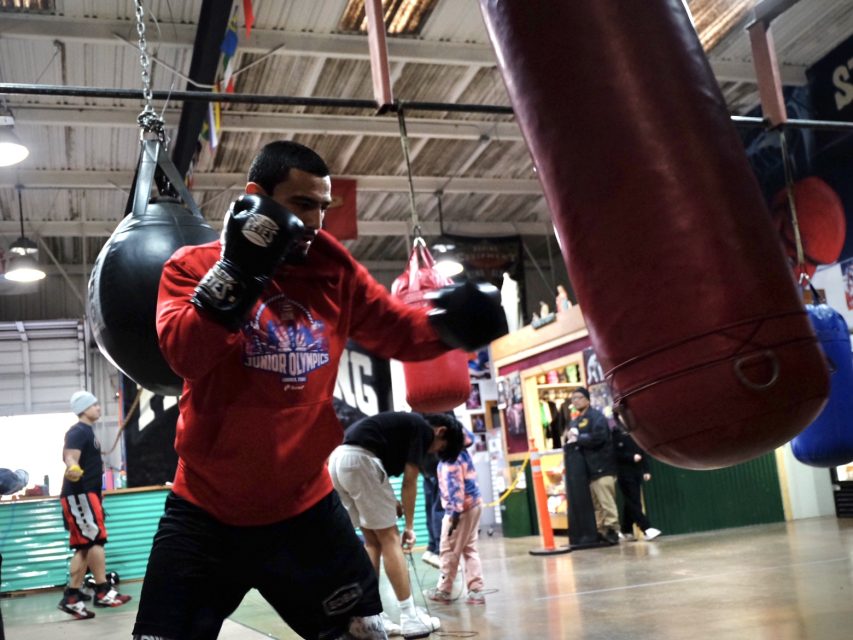
In Aroche’s teenage years, he split his time between San Francisco and East Oakland. “I got distracted with being outside, hanging out, you know, being teenagers and stuff.”
During those years, he lost close friends and family members to violence in Oakland. “I just decided to put my energy into something more productive, something useful,” he said. “I didn’t want to go down the same path that I’ve seen a lot of other people going down.”
Aroche carries tattoos to remind him of people he’s lost, and said he’s thankful that boxing has shown him it’s okay to get hurt or make mistakes. That’s how people grow, he believes — both in ring fights and in real life.
“I’ve been touched up before, I’ve been punched a couple of good times,” he said. “But that’s how you just get better.”
A young single dad raising his one-year-old son, Aroche hopes boxing can give his child something to be proud of, just as he’s carried the legacy for his own father.
Has boxing changed Carlos Aroche? “I think boxing has saved him,” said his father. “Boxing has always brought us back together. It has been our saving grace.”

